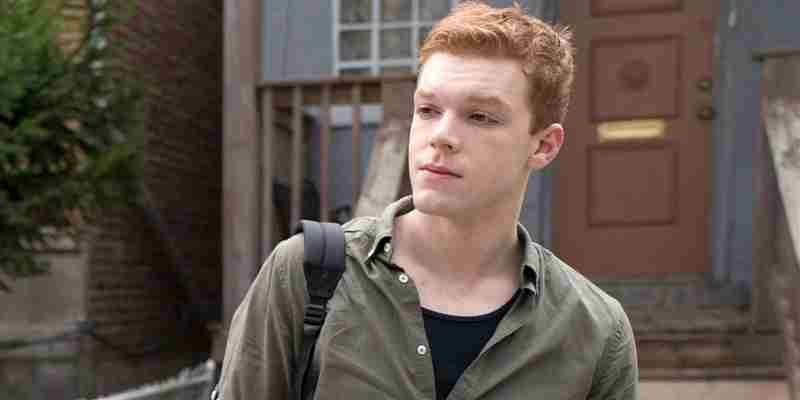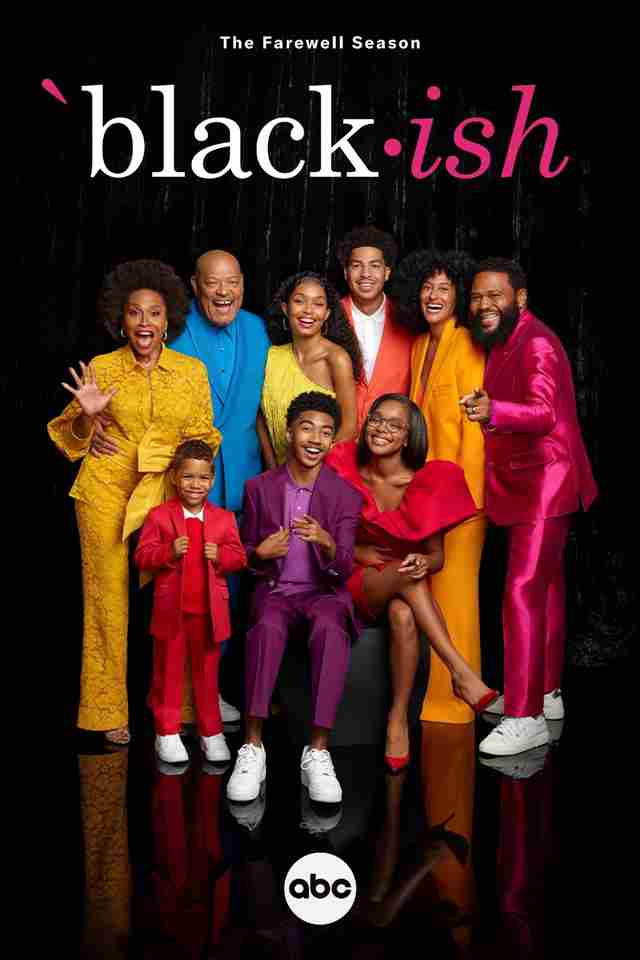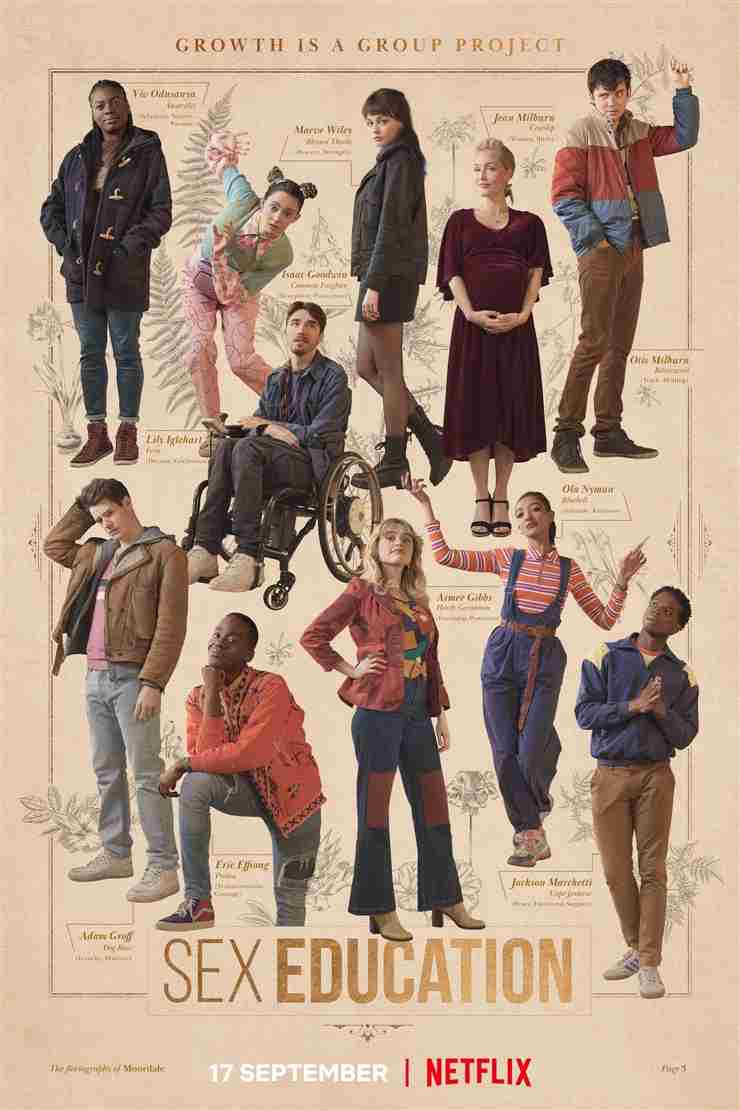- Los personajes de televisión con trastornos mentales ofrecen un amplio espectro de representación precisa, rompiendo barreras en los medios populares.
- Las representaciones de enfermedades mentales ayudan a los espectadores a hablar sobre sus luchas, desestigmatizar las condiciones y alentar la búsqueda de apoyo.
- Programas como BoJack Horseman, Shameless y Ozark brindan representaciones precisas que ayudan a crear conciencia y abrir el diálogo sobre la salud mental.
La salud mental es un tema serio que requiere mucha sensibilidad y honestidad cuando se trata de representación en los medios populares, y estos personajes de televisión con trastornos mentales brindan un amplio espectro de representación . Muchos programas y películas han sido criticados por su descripción de la salud mental, con personajes reducidos a clichés bidimensionales que promueven estereotipos dañinos. Los medios contemporáneos han asumido el desafío de ofrecer una representación precisa de la salud mental. Programas como BoJack Horseman obtuvieron elogios de la crítica por sus exploraciones de las enfermedades mentales, además de convertirse en elementos icónicos de la cultura popular.
Las enfermedades mentales son cada vez menos tabú en la televisión. Parte de esto se debe a que los actores y escritores expresan su opinión sobre buscar ellos mismos apoyo para la salud mental y alientan a los espectadores a hacerlo también. Contar historias serializadas que representan cómo los personajes de ficción aprenden a vivir con depresión, ansiedad y más ayuda a romper las barreras para que los fanáticos hablen de ello. A veces, las representaciones de enfermedades mentales en los medios pueden generar división, ya que puede haber síntomas superpuestos en diferentes enfermedades y no todos los experimentan de la misma manera. Estos personajes de televisión con trastornos mentales son los primeros en abrir un diálogo.
Diez películas elogiadas por su descripción de problemas de salud mental
Estas películas ayudan a desestigmatizar los problemas y condiciones de salud mental, dejando al público con más empatía hacia quienes necesitan ayuda.
María Bamford (Lady Dinamita)
Interpretada por María Bamford
Lady Dynamite es un programa especial porque está protagonizada por Maria Bamford como ella misma. Esta es una versión ficticia de la historia de su vida y Bamford la usa como una oportunidad para mostrar cómo es realmente vivir como un personaje con una enfermedad mental. La serie sigue a María mientras regresa a Los Ángeles después de pasar seis meses en recuperación por trastorno bipolar. Su objetivo es reconstruir su vida con la ayuda de su agente (Fred Melamed) y su asesora personal (Ana Gasteyer) y, en última instancia, montar un espectáculo de monólogos centrado en su crisis mental.
A la estrella Maria Bamford le han diagnosticado en la vida real trastorno bipolar II y trastorno obsesivo-compulsivo.
Gracias a su experiencia de la vida real con el trastorno bipolar, Bamford puede darle una apariencia realista a la afección y no exagerar demasiado las cosas ni hacer que parezca diferente de lo que realmente es. El programa también revela lo difícil que es esto para los amigos y familiares de una persona con esta afección y lo difícil que es controlar el comportamiento destructivo que causa la manía. Lady Dynamite encuentra humor en la situación de María, pero siempre se basa en la verdad y nunca se burla de las personas con trastorno bipolar.
Ian Gallagher (Desvergonzado)
Interpretado por Cameron Monaghan

Shameless está lleno de personajes que padecen diversas enfermedades mentales y la mayoría de ellos no están en tratamiento. Ian Gallagher tiene trastorno bipolar y estaba recibiendo tratamiento en la serie. La serie muestra sus cambios de humor, desde los más altos hasta los más bajos, y los problemas de depresión causan muchos de sus problemas en el programa. A lo largo de las historias de Shameless , Ian muestra cómo el trastorno bipolar puede cambiar a una persona, afectar sus emociones y alterar su visión del mundo.
Cambia su relación con su familia, sus socios y casi todos los que lo rodean. Los mayores problemas de Ian surgieron cuando dejó de tomar sus medicamentos y era obvio que algo andaba mal. Sus acciones en la serie cuando no toma sus medicamentos son muy precisas sobre cómo es vivir con esta enfermedad mental. Al final de Shameless , el programa seguía siendo una descripción positiva de cómo seguir adelante con una enfermedad mental, ya que mostraba que una persona aún podía prosperar en el lugar de trabajo y defenderse a sí misma cuando practicaba el cuidado personal.
Desvergonzado
ElencoFecha de estrenoTemporadasDirectoresBen Davis (Ozark)
Interpretado por Tom Pelphrey
Ozark no consigue que las condiciones de salud mental sean perfectas, como se ve en una variedad de personajes. Sin embargo, un personaje que terminó siendo muy acertado fue Ben Davis y su trastorno bipolar. Las acciones de Ben en la serie representan en gran medida lo que atraviesa una persona con trastorno bipolar a diario mientras lucha por sobrevivir en la vida y tomar las mejores decisiones posibles mientras lidia con esta enfermedad. Cuando pequeñas cosas le provocaban cambios de humor y ataques de llanto, era una clase magistral de actuación de Tom Pelphrey.
Tom Pelphrey recibió una nominación al Primetime Emmy como Mejor Actor Invitado en una Serie Dramática.
Ozark también anotó muchas de las pequeñas cosas, como cómo gruñe cuando está frustrado o se limpia el cabello cuando está enojado. Estos pequeños momentos realmente mostraron lo que es lidiar con el trastorno bipolar, incluso cuando las personas que los rodean no comprenden que algo anda mal. Pelphrey también trabajó duro para mantener sus expresiones faciales carentes de energía, lo cual es otro síntoma del trastorno. Desde las pequeñas cosas hasta las acciones del programa, esta podría ser una de las mejores representaciones del trastorno bipolar en la televisión.

Ozark
ElencoFecha de estrenoTemporadasDirectoresFiona Gallagher (Desvergonzada)
Interpretado por Emmy Rossum
Durante la mayor parte de Shameless , Fiona Gallagher era quien tenía que mantener unida a la familia. No tuvo otra opción, ya que su madre se fue y su padre había caído en el alcoholismo. Lamentablemente, no había nadie allí para cuidar de Fiona ella misma. Fiona tenía graves problemas de depresión y, a medida que avanzaba la serie, estos problemas de salud mental continuaron empujándola a lugares oscuros. Se enfrentó a sus problemas familiares y perder su trabajo en la temporada 9 finalmente hizo que Fiona cayera en malos hábitos.
Incluso cuando vio lo que el alcoholismo le hacía a su padre, Fiona empezó a beber más. Comenzó a fingir ser feliz cuando no lo era y cambió su percepción de la realidad a algo con lo que podía lidiar. A lo largo de esa temporada empezó a perder la fortaleza mental y, como era la persona que se encargaba de cuidar a los demás, no le quedaba nada que darse a sí misma. Sus hermanos, a quienes ella ayudó a criar, ni siquiera se detuvieron para ayudarla y Fiona finalmente tuvo que dejar todo atrás por su propio bienestar mental.
Ted Lasso (Ted Lasso)
Interpretado por Jason Sudeikis.
Ted Lasso es, ante todo, una comedia. Se trata de un ex entrenador de fútbol americano que es contratado para entrenar a un equipo de fútbol en el Reino Unido. El propietario espera que Lasso pueda llevar al equipo a una caída libre, pero hace todo lo contrario y fortalece al equipo. Pero Ted Lasso no tiene miedo de ponerse serio, especialmente cuando se trata de representar los efectos de la enfermedad mental en el propio Ted. Es verdaderamente optimista y lleva a su equipo a la grandeza sin darse nunca por vencido. Sin embargo, Ted sufre ataques de pánico y se da cuenta de que necesita ayuda .
Jason Sudeikis y el elenco de Ted Lasso se reunieron con el presidente Joe Biden para hablar sobre problemas de salud mental.
Aquí es donde el programa brilla, ya que Ted Lasso no bromea con los problemas de ansiedad y las enfermedades mentales de Ted. En cambio , muestra cómo se puede utilizar la terapia para ayudar realmente a una persona a comprender de dónde provienen los problemas y establecer planes para ayudar a abordarlos. El actor de Ted Jason Sudeikis le dijo a CNN :
Myself and other people in the cast, especially the writing staff, get messages daily from people thanking them for really opening their eyes to what it means to go to therapy and what it means for someone in their own life to go to therapyand just speaking about these things and taking the stigma off of any form of health whether it be nutrition or mental, emotional health.
Ted Lasso
CastRelease DateSeasonsRatingRainbow Johnson (Black-ish)
Played By Tracee Ellis Ross
It's rare for sitcoms to seriously tackle any issues remotely associated with mental health without turning a stereotype into a punchline. Black-ish, however, has done a great job at integrating serious topics into its comedy and allowing episodes to be more dramatic than sitcoms typically would. One storyline, though it might have been shorter than some fans liked, involved Black-ish's Bow dealing with postpartum depression after the birth of her child.
Audience members praised the episode for both its portrayal of Bow's struggle with her own guilt about her very real feelings and the point of view of others in the house who might not have understood what Bow was going through. Bow has become one of the best depictions of characters with postpartum depression in recent years.This was a strong storyline and touched on a serious topic in a responsible manner.

Black-ish
CastRelease DateSeasonsNetworkDirectorsGretchen Cutler (You're The Worst)
Played By Aya Cash
You're the Worst has been widely labeled as an "anti-rom-com", but beyond its sarcasm-filled comedy, the show has also tackled a lot of heavy topics. Season 2, specifically, pivots to highlight Gretchen being diagnosed with depression. The character explains that her "brain is broken" at one point, highlighting her own feelings of inadequacy.
The reveal of her diagnosis allowed viewers to see how some of her behavior was rooted in the feelings that resulted from her depression. While some fans didn't enjoy the show taking a detour from its comedic route, the LA Times praised the episode, calling it television's "best depiction of clinical depression ever" among TV characters diagnosed with mental disorders. Aya Cash earned a Critics' Choice Award nomination for Best Actress in a Comedy Series for her role as Gretchen Cutler in You're the Worst.
You're the Worst
CastRelease DateSeasonsNetworkEdgar Quintero (You're The Worst)
Played By Desmin Borges
Also in You're The Worst is Edgar, who is a combat veteran with post-traumatic stress disorder. Unlike Gretchen, whose mental illness is treated as a story reveal, Edgar's PTSD is a part of his character from the start of the show, woven into his storylines with sensitivity and a realism that isn't always present in comedies.
Edgar struggles with his medication, wanting to take it to attempt to have as much normalcy in his life as possible, but also giving it up completely in season 3. Viewers are able to see Edgar's story from his own point of view instead of the outside looking in as he struggles with sleep, paranoia, and treatment. You're the Worstseason 3, episode 5, "Twenty-Two", puts the spotlight on Edgar and his condition, and is meant to raise awareness for the number of combat veterans who end their lives because of PTSD.
Rebecca Bunch (Crazy Ex-Girlfriend)
Played By Rachel Bloom
There's no denying that Crazy Ex-Girlfriend is an extremely fun (and rare) musical series. That comedy, however, manages to deal with a lot of incredibly serious topics in a way that doesn't alienate viewers or pass judgment on those who might be dealing with the same subjects as the characters, including a TV character with a mental disorder that is rarely highlighted in dramedies.
Initially, many fans thought Rebecca might have been depressed or afflicted with a more generalized anxiety disorder as the show demonstrated her mental health issues, but left many aspects of them ambiguous. That changed as Crazy Ex-Girlfriend built to Rebecca's diagnosis of Borderline Personality Disorder and attempt to end her life. Fictional characters with BPD are also often vilified instead of presented as people learning to exist with their illness. Rebecca marks a change in that.
Crazy Ex-Girlfriend
CastRelease DateSeasonsNetworkDirectorsCarrie Mathison (Homeland)
Played By Claire Danes
Carrie Mathison lives with bipolar disorder while being a top-notch agent for the CIA in Homeland. Her portrayal definitely deals with the stigma attached to those living with mental illness as she hides her mental disorder from her employers in an effort to keep her job. There's a fear of judgment and repercussions if she can't "control" it.
The show allows the audience to see what it's like when Carrie feels supported and takes her medication regularly, and what happens when the opposite is true. Bipolar disorder doesn't dictate the narrative of the show, but it does inform a lot of Carrie's decisions.While some members of the audience might have found the depiction to use Carrie's diagnosis as nothing more than a plot point, Psychology Today found the way bipolar disorder was depicted to be incredibly accurate.
Homeland
CastRelease DateSeasonsNetworkDirectorsHomeland: 10 Things You Forgot From The First Episode
Homeland went through a lot of changes over its run. So much was different by the end, that fans probably forgot key things from the first episode.
Jackson Marchetti (Sex Education)
Played By Kedar Williams-Stirling
Male characters dealing with mental illness are far less common than females in modern media, though this does not reflect reality. Jackson Marchetti is a great example of a male TV character breaking the stigma, with some help from his loved ones, and accepting his mental illness. Jackson is a prolific swimmer in his school, has always dated "popular" girls, and is elected Head Boy at school.
He seems to have everything going for him, yet he's one of the newer fictional characters who have to deal with debilitating anxiety, so much so that it leads him to self-harm. He goes through a journey in which he evaluates his relationship with swimming and his moms, eventually accepting help from his friends and allowing himself to open up to others. Seeing someone portrayed as a popular jock yet needing to accept help is a very positive example of representation in the TV show.

Sex Education
CastRelease DateSeasonsDirectorsRatingBeth Harmon (The Queen's Gambit)
Played By Anya Taylor-Joy
Beth is orphaned at a young age in The Queen's Gambit, left largely to her own devices as she grows up. She also develops an addiction to a tranquilizer pill in her childhood, something that impacts her greatly. Beth's mental illness isn't labeled explicitly in the series, but she has an unhealthy obsession with winning. She also does everything in her power to sabotage herself: she drinks, smokes, takes other substances, and drowns herself in sorrow.
She also isolates herself and often rejects the help of other people. A reporter even labels her a genius and implies that she is "mad." Care Clincs wrote, "Throughout the mini-series, Beth was battling her own inner demons, including insecurity and self-loathing which led to self-destructive behaviors." However, by the end of The Queen's Gambit, "Beth’s journey was a tale of self-discovery."
The Queen's Gambit
CastRelease DateSeasonsDirectorsBeth Cassidy (Dare Me)
Played By Marlo Kelly
Dare Me's Beth Cassidy is a lesser-known character when it comes to television shows, but a powerful one nevertheless. She's used to having power, but when her best friend starts to spend more time with their new cheer coach, Beth feels their friendship — and her hold over the team — slipping away. Like other TV characters with mental disorders, though, Beth is depicted with symptoms of more than one, her mental illness isn't explicitly labeled.
She starts to spend time with people who are bad for her, even abusive. She withdraws into herself, ignoring texts and botching commitments. Nobody around Beth seems to notice or understand what's going on with her because she can't bring herself to be honest about her experiences. This is all too common when it comes to mental illness, as is Beth's isolation.
Dare Me
CastRelease DateDirectorsHannah Horvath (Girls)
Played By Lena Dunham
Lena Dunham plays the main character of HBO's Girls.Hannah Horvath struggles with obsessive-compulsive disorder (OCD), a well-known but not well-represented mental illness in media.Hannah also struggles to financially support herself. She mostly experiences the symptoms of OCD at particularly stressful times in her life, which viewers have praised as an accurate depiction of the condition. OCD is often made fun of or used as meme fodder, and Hannah's portrayal has helped to change that.
Dunham felt it was important to ensure that her character's symptoms and journey were as accurate as possible.
Psychology Today broke down Dunham's depiction of OCD in Girls. According to the site, while the show follows Dunham's personal journey, it also displays "genuine symptoms" of the illness. Dunham herself was diagnosed with OCD when she was nine, and she has often said she is "afraid of everything." As a result, Dunham felt it was important to ensure that her character's symptoms and journey were as accurate as possible.
Sydney Novak (I Am Not Okay With This)
Played By Sophia Lillis
In I Am Not Okay withThis, Sydney is an angsty teen trying to process her father's recent death by suicide, her romantic feelings toward her best friend, and her newfound supernatural abilities. In th end, it turns out that these abilities are metaphorical representations of her mental health. Sydney lives with anxiety and depression and seems to have inherited her powers from her father, who struggled with PTSD.
Her outbursts of telekinesis are physical manifestations of how she feels when she's anxious, angry, frustrated, embarrassed, or sad. They're also an accessible way for those in the audience who can't empathize with these feelings to understand how she feels. It might not be realistic when it comes to the supernatural situations, but by seeing them unfold based on her own mental illness, it makes it easier to comprehend.
I Am Not Okay with This
CastRelease DateSeasonsNetworkDirectorsI Am Not Okay With This: 10 Questions We Still Have
Netflix's I Am Not Okay With This will not be returning for a second season, but that doesn't mean we don't have a lot of questions left...
BoJack Horseman (BoJack Horseman)
Voiced By Will Arnett
BoJack Horseman explores the titular character's struggles with addiction, depression, and the aftereffects of childhood neglect. The Netflix show blends BoJack's hard-hitting and emotional story with surreal humor, producing some of the most insightful explorations of mental health in an animated show. The characters in the series have become some of the most recognizable TV characters with mental disorders in pop culture.
BoJack's character is not two-dimensional. His mental health issues and struggle with addiction are depicted in an honest and thought-provoking way. BoJack creator Raphael Bob-Waksberg told Vice that he wanted to portray BoJack's depression "truthfully" and explore "lots of explanations for why BoJack is the way he is." The one thing that this show does is attack these issues head-on. Nothing is easy, and nothing is handed to BoJack. He has to accept or deny any of the problems he faces and then deal with the repercussions of those decisions.
BoJack Horseman
CastRelease DateSeasonsNetworkDirectorsAlyssa (The End Of The F****ing World)
Played By Jessica Barden
In season 2 of The End of the F***ing World, Alyssa copes with the aftermath of the first season. Her arc is an intense introspective into mental health as Alyssa deals with depression and recovering from trauma. Alyssa's arc in season 2 is handled honestly and respectfully and depicts the feeling of separation from reality. While the first season saw James self-diagnosis himself as a psychopath, the series never confirmed Alyssa's diagnosis or lack thereof in that season. Things change in the second season.
Actress Jessica Barden said in an interview with Radio Times that Alyssa is "dealing with depression and doesn't understand it." She went on to say, "I've always related to Alyssa in her more brusk personality traits. And it was really interesting, and it was a great challenge to play somebody struggling with the things she's struggling with."
The End of the F***ing World
CastRelease DateSeasonsNetworkDiane (BoJack Horseman)
Voiced By Alison Brie
In BoJack Horseman, no two characters truly understand each other better than Diane and BoJack, and a large part of that can be attributed to their shared struggles with their mental health. Diane's depression is directly addressed in the first half of season 6, with her new boyfriend, Guy, urging her to take anti-depressants.
Diane's struggle is honest and raw. Her decision to take medication for her mental health mirrors BoJack's journey in rehab. During the closing scenes of the season, a rejuvenated Diane reunites with Guy at the airport conceding defeat about Dawson's Creek.It is interesting contrast to see BoJack, who seems to continue his downward spiral, which at one point metaphorically leads to the darkness of the abyss, and then see Diane, who seems to be on the road to self-help thanks to her finally accepting that she can't do it alone.
Rae (My Mad Fat Diary)
Played By Sharon Rooney
My Mad Fat Diary is a British comedy-drama that first aired in 2016 on E4 and focuses on teenager Rae's readjustment after leaving a psychiatric hospital. Rae is a lovable and heart-warming character and her struggles with self-esteem and mental health are handled in a sensitive but touching manner. Set in the mid-1990s, the show follows Rae as she reconnects with her best friends.
Los críticos elogiaron My Mad Fat Diary por su interpretación de la salud mental y el humor amable, con la voz en off de Rae brindando una " visión divertida de su experiencia luchando contra sus tiempos más oscuros ". (a través de Vulture ) El programa trata sobre tratar de adaptarse al mundo después de que una persona ya se siente rota en él . Lo mejor es que la serie nunca usa la enfermedad mental de Rae como excusa para lo que hace, sino que se trata de la motivación para ser mejor a medida que ella se supera.
Jessica Jones (Jessica Jones)
Interpretado por Krysten Ritter
Jessica Jones es una exploración perspicaz del trastorno de estrés postraumático, y la propia Jessica es una heroína con la que se puede identificar. Su arco de la temporada 1 en el que se enfrenta a Kilgrave es un análisis escalofriante de abuso y trauma, pero Jessica es tan fuerte emocionalmente como físicamente, y su confrontación final con él es un final satisfactorio para un villano despreciable.
Jessica Jones ha sido elogiada por poner " a las mujeres a la vanguardia " (a través de Independent ), y la tercera y última temporada presenta su inevitable confrontación con Trish, quien cae en una villanía comprensiva mientras lidia con su propia adicción y sus sentimientos de insuficiencia. Jessica lucha contra su trastorno de estrés postraumático debido a un trauma infantil , que empeora gracias a Kilgrave, y un posible trastorno bipolar, pero no diagnosticado. Ella los supera, encuentra ayuda y se convierte en una gran heroína sin dejar que su condición la desgaste.
Jessica Jones de Marvel
ElencoFecha de estrenoTemporadasDirectoresde la cadenaMarvel y Disney han cambiado el título y el logotipo del episodio piloto de Jessica Jones en Disney+, y el cambio puede ser importante...
Artículo relacionado
- Estas 10 estrellas luchan contra una enfermedad mental
- 19 realidades difíciles que enfrentan las personas mayores
- Diez estados que abordan de frente las enfermedades y las adicciones
- 5 señales de que necesitas ayuda mental
- Celebridades que viven con enfermedades crónicas
- Consejos de yoga prenatal para principiantes y profesionales
- 18 lecciones que cambian la vida de personas que superaron enfermedades graves
- 19 señales de una relación sana, según los terapeutas
- 9 roles positivos de las redes sociales en la salud mental
- Perdí más de 129 libras con estos trucos de cereales